1915 Hrs GMT
London
Saturday
25 September 2010
Editor © Muhammad Haque
From an external blog called 'Liberal Conspiracy', accessed and posted at 1915 Hrs GMT on Saturday 25 September 2010 by AADHIKAROnline for contextual reference by visitors to this BHANGEELAAR! blog
Lewisham shows how poor people are all in it together
Last week I went to Lewisham Town Hall, where local Labour centrist legend Sir Steve Bullock was due to hold a cabinet meeting on service cuts.
Sir Steve’s cabinet is positioning the axe (with a perverse enthusiasm, some say) over £3m worth of services.
But that, alas, is not all. Weirdly keen to shine in this first leg of the coalition’s local government service-slaughter challenge, Lewisham council has bullocked ahead and forecast a budget gap of up to £60m for 2011 to 2014 (although it’s still in the dark about government plans for key grants).
It has already instructed officers to identify services to push up front for this second phase of the massacre. There’s little evidence the council is fighting for alternatives to keep the poor in this deprived borough afloat – moderate council tax increases in the top bands next year (the council is not compelled to accept Osborne’s incentives to keep increases down) or halts to the capital and PFI programme.
“It would be easy to declare our opposition to the cuts the coalition is proposing,” Bullock said in his May AGM address, as he piddled on any notion of combat with the government.
Lewisham cuts targets include a mass of jobs in the children and young people’s service, adult social care jobs and care packages, and daycare support for people with learning disabilities. Increased charges are proposed for services like meals on wheels and non-residential care (the complete hitlist is here).
Back to Lewisham town hall, where the NUT fronts a healthy-sized rally as the cabinet prepares to meet:
I dip a toe in the rally, where I find that it is indeed Bullock and Lewisham Labour that people want to scrag. The coalition government gets a pass to quite an extent. The PCS is here, as well as the NUT and NASUWT, which means it’s just like the good old days, before the Tories got in – leftwing unions outside a town hall, screaming bloody death at the local Labour in-crowd. I waft round in an odd wave of nostalgia.
I speak to Kathy Duggan, a local primary school teacher, and NASUWT’s Lewisham secretary. She talks about the council’s response to the cuts agenda, and Gove’s plans for schools and academies, as you’ll see. She’s also furious about Mark Elms and his £200,000+ salary – boy, the unions came down hard on that one:
I also speak to Karen Jonason – a soon-to-retire deputy headteacher at Lewisham’s Pendragon school for children with learning disabilities. She’s circulating a petition to keep Crofton Park library open (Sydenham, Blackheath, Crofton Park, Grove Park and New Cross libraries are tagged for closure on Bullock’s list). She’s also a longtime Labour party member. She makes no excuse for this, even though I ask her to. “You fight from within.”
She thinks targeting Crofton Park library is ridiculous – “it’s always full of people, with kids always on the computers.” Elderly people are regular library visitors. She says if money must be found, building and refurbishment work should be postponed ahead of cutting ‘small services’ like neighbourhood libraries.
I couldn’t agree more. There’s big money in these parts, but you need to know where to look for it. The council’s dreadful, and dreadfully expensive, PFI contracting process to date would be an excellent place to start – the National Audit Office has just rapped Lewisham’s knuckles for allowing its Brockley Housing project costs to increase from £44.6m?to an extraordinary £115.91?million. Osborne’s spending review will assess PFIs, and the NAO is keen to hear more about their value:
As part of planned assessment of PFI housing through the 2010 comprehensive spending review and in view of a period of restraint and efficiencies in public sector spending, the department (for communities and local government) should consider PFI in the context of its other housing investment programmes, assess the different types of project used and ensure that value for money is a primary focus in terms of the selection of PFI as an investment option.
That’s where the real money is. Jonason knows, and I know, and we all know that these immediate service-slashing economies are false economies. Bullock’s huge list targets people we (literally) can’t afford to target. Makes you wonder what will happen when we really need to save.
An amusing little update: Sir Steve calls his concerned constituents fucking idiots. That is absolutely the first time anyone’s ever called me that.
-------------------------
Share this article
| Post to del.icio.us |
|
|
|
|
|
Kate Belgrave is a regular contributor to Liberal Conspiracy. She is a New Zealander who moved to the UK five years ago. She was a columnist and journalist at the New Zealand Herald and is now a web editor. She writes on issues like public sector cuts, workplace disputes and related topics. She is also interested in abortion rights, and finding fault with religion. Also at: Hangbitching.com and @hangbitch
· Other posts by Kate Belgrave
Filed under
Blog ,Economy ,Fight the cuts ,Local Government
27 responses in total ||
Reader comments
“Sir Steve calls his concerned constituents fucking idiots. That is absolutely the first time anyone’s ever called me that.”
And it won’t be the last. Pray tell, how can we pay for all these services when the money’s run out?
I’ve lived in Lewisham all my life, and in my opinion Steve Bullock is useless and incompetent. Lewisham council regularly wastes money it doesn’t have. Particularly shameful has been the recent primary school debacle in Lewisham. Due to an increase in the birth rate 500 new reception places – 18 classes – have to be created in reception for next year, but no money from central government was requested when it should have been. As such the money has to come out of the local education budget, which is now beyond breaking point.
http://maxink.wordpress.com/2010/03/26/lewisham-primary-schools-short-of-543-reception-level-places/
The state of the schools in the borough is already dreadful, and this will only make it worse.
I’m a member of the Labour party but I spoiled my Mayoral ballot at the election rather than vote for him. At the next local election I’d implore anyone else who normally votes Labour to do the same, or vote for whomever the Liberal democrats field.
I’ve no particular regard for Conservatives or for academies and the like being outside the control of local education authorities. That said, I’ve an uneasy sense, based on experience from local government, that some local education authorities are incompetent or malignant and inflict much damage in different ways on local schooling standards.
A rather over-the-top article: what can Lewisham’s Labour administration do given that so much of their money comes from central government and this is being cut, whilst councils are being ordered to freeze their tax.
This article proposes some alternatives to Lewisham’s proposed cuts, but they don’t work.
Specifically, you can’t cut capital expenditure to make up for a revenue deficit. Councils are permitted to transfer money from the revenue budget to the capital budget, but not the other way round. Any alternative to the current proposals must involve identifying other savings in the revenue budget – and that almost always comes down to cutting jobs, one way or another.
Rejecting the council tax freeze is also unlikely to help. From the linked article, it seems that Osborne is planning to introduce the freeze on the same basis that the SNP government in Scotland did: increasing the grant to local authorities to make up the shortfall in revenue caused by the freeze. Now, I think this isn’t a good policy for other reasons, but it’s clear that rejecting this funding and raising council tax instead isn’t going to improve the council’s financial situation. Unless the council tax rise is much larger than usual, of course – but then it is very likely to be capped by central government.
It would be good to see an alternative budget worked up by opposition councillors, as they should at least have a clue about local government finance. That could provide the basis for an intelligent and realistic debate.
A few responses (will get back in more detail later)
@ Blanco – dude, the issue is several fold. The money has run out, apparently, so it’s a matter of negotiating our way through that problem.
First issue – we don’t need to pay back the deficit as quickly as Osborne proposes. Have a look at Gary Younge in yesterday’s Guardian for a rundown on that.
Second issue: my issue with Bullock’s response (over the top though some think it to be) is that he was inclined to take the service cut option from the word go. I spoke to him before Osborne delivered his emergency budget, and he was much of the opinion that there were no alternatives. That’s the cheap and easy option in my view.
I disagree with Iain Coleman above – I think that there are alternatives (council tax is for higher bands is certainly one of them, no matter Osborne’s promise of compensation for councils that achieve zero increases).
I think this is especially significant in view of the slaphappy – one might say almost flippant – nature of some of the cuts Lewisham proposes. We see in the council’s list, for example, reference to pest control and the elimination of pest control posts. The justification for this is that people have used the service less since the council started charging for it. Ergo, the service is no longer required. In fact, the reason the paid-for service is not taken up is that people have to pay for it. It’s not that it isn’t required – it’s that it isn’t affordable. So on and so on and so on.
Iain – I’m all for the sensible discussion, but what we really need to hear is a little detail around the sort of alternative budgets that you refer to and that Labour councils might propose.
You hug the book too close and hope to play smoke and mirrors by describing the one-way split between capital and revenue spend. The real issue is that Labour isn’t prepared to draw a lot of attention to the realities of PFI spend on the local scene.
The Brockley Housing project has been an absolute disaster for Lewisham and presented locals with a cost-spiral gap of some £70m. The NAO is making a lot of loud noise – as many have for some time now – regarding the realities of the PFI model as value for money. Certainly, the NAO is of the opinion that the PFI option needs to be examined as part of the spending review – the implication being that the whole thing is out of hand and that there’s money to be found. And sure, the coalition wants to take the opportunity to shit on the PFI model – the problem for Labour is that it’s eminently possible for the coalition to do that. Scope creep, poor contracting practice, lengthy contracting processes – they’ve all been murderous features of PFI.
The point I’m making is that Labour needs to come up with something a little more imaginative than charging the vulnerable for services and wiping out pest control officers if it’s really going to set itself apart from the coalition. Publicly stating it plans to ignore Osborne’s bribes over zero council tax would be one such idea. Campaigning for flexibility between capital and revenue saving and spend would be another. Lewisham council, for instance, plans an upgrade for Catford town centre, which apparently involves a refurbish and rebuilding of public buildings in that area (including the town hall, I gather). My latest reading on that project is that it is full steam ahead. Little wonder that I find people like Karen Jonason saying that the council can’t prioritise. ‘What’s wrong with keeping that building and keeping the (Crofton Park) library?’ she said.
Osborne plans to lift existing ringfences round existing revenue budgets to allow flexibility between grant spend. Routes between budgets can be magicked to legislation when there’s willing. We’re all talking about sensible/possible/popular alternatives to service annihilation on the left – but what are those alternative savings ideas? Either we increase revenue (largely council tax on the the local scene – I’d certainly choose that ahead of charging the vulnerable for vital services), or a realignment of spending priorities and budget integration. I can certainly see why Labour wants to run screaming from all those possibilities, but you know – what other ideas does it have? If it’s not prepared to oppose the cuts, it at least needs to set out workable options.
So, let’s work out what those are.
Kate
Hard luck for living in an area where this clown runs the council. He’s clearly doing what one would expect a Labour council to do: concentrating cuts on key services in order to make the Coalition government unpopular. He’ll get his comeuppance soon enough.
What’s astonishing – if I read the PDF in your link right – is the cynical way in which even the relatively small in year budget savings were immediately applied across frontline activities instead of in the backroom (read: Town Hall) where they are supposed to fall.
Looks like economic sabotage for tribal political motives. Labour will not be forgiven for this cynical approach to deliberately causing pain to the vulnerable while keeping bureaucratic elites protected.
@ 6 “First issue – we don’t need to pay back the deficit as quickly as Osborne proposes. Have a look at Gary Younge in yesterday’s Guardian for a rundown on that.”
In the same way that you don’t “need” to pay more than the minimum payment off a credit card every month, but it you don’t the debt becomes much more expensive and lasts a lifetime. The power of compound interest is a terrible thing, never mind what some guardian columist says.
More generally it’s no good just opposing cuts unless you are saying that the defecit doesn’t matter, in which case why is pretty much every country with a defecit cutting, and why did the last govt set many of the current cuts in train while they were in office ?
As for being “more imaginative” – what does that mean in practice ? PFIs were a “more imaginative” way of getting around capital constraints and keeping debt off the balance sheet and look what’s happened to them.
The money has run out, you cannot just wave a magic wand and hope it will re-appear again.
The teaching unions are living in a dream world where they think they should be insulated from being let go because of incompetence. The academies bill should help with that. There’s also quite a lot of incentives for authorities to keep council tax low so Bullock’s probably taken a medium term view. I’m not sure why you mentioned poor people as all the services mentioned are unrelated to wealth. Local authorities need to stop providing services which can and should be contracted out and get back to their initial remit but i guess i’m struggling with what that is.
@ 7 Exactly – and I’d be willing to bet that they still have plenty of diversity outreach co-ordinators, one legged jamiacan lesbian alcoholic support workers and tai che change delivery teams.
Local councils: Empty the bins, cut the grass and then p*ss off.
flowerpower
Trouble is that the cuts are vast. Anyone pretending frontline services won’t be effected is lying or an idiot.
I don’t know much about Lewisham, but I know other boroughs in London are facing bigger cuts than them. The worst hit will probably be Brent, Newham and Haringey (One of which I know is having to talk about bigger cuts than those mentioned in the article, and I’d be surprised if the others are not)
The reason they will be hit hardest is that they are outer london boroughs. Now I know what you are thinking. Clearly they are inner london. But no. Brent, East Ham, Forest Gate and Tottenham, along with dozens of other such desperate places are the same as Upminster and Hillingdon on the funding scheme.
the other inner london boroughs won’t vote to recognise them as that dilutes the inner-london funding between more councils and so reduces their chare.
Labour overcame that by directing lots of money their way through various development funds. But the tories will end that as those places vote Labour anyway.
So it will be interesting to see whether such articles are writen of council leaders in those places over the coming years – and whether you’ll acknowledge that party-politics works two ways.
On case this gets overlooked:
“Charities on Monday welcomed David Cameron’s plans to set up a ‘big society bank’ but warned the prime minister that brutal Whitehall cuts threaten to derail his vision of the voluntary sector taking over public services.”
http://www.ft.com/cms/s/0/ddf2bc5e-9327-11df-96d5-00144feab49a.html
It’s sad about Fred but no one had volunteered cover for that day.
Kate:
The capital/revenue split is not “smoke and mirrors”, it’s a fundamental part of local government finance. You seem to want Lewisham Labour to campaign to have this distinction removed, or at least made more flexible. Well, good luck with that. It’s unlikely ever to happen, and in any case hardly provides a basis for Lewisham’s budget this year.
Why is it unlikely to happen? Because the split is there for a very good reason. Capital is a one-off spend: you put up a building once, you don’t need to build it anew every year. Revenue is continuing expenditure: you hire an environmental health officer, you need to keep paying their salary every year. Even if using capital to pay for revenue was suddenly allowed, it would still be a bad idea.
As for PFI: the scheme you talk about may very well have been massively misconceived. However, it’s there now, and unless there is some mechanism for pulling out of it at less cost than continuing with it, it doesn’t seem to provide any answers to Lewisham’s need to cut revenue spending.
I don’t understand your comment that “what we really need to hear is a little detail around the sort of alternative budgets that you refer to and that Labour councils might propose”. Lewisham is a Labour council: an alternative budget would be proposed by an opposition group (presumably the Lib Dems, in this case, as the only sizeable opposition group in Lewisham). They would of course have access to advice and costings from council officers.
I remain skeptical about the contribution that might be made by raising council tax. One would have to do the sums properly, and opposition councillors are in a position to do that, but my gut feeling is that the gap between what central government will provide to compensate for a council tax freeze, and the level at which council tax rises are likely to be capped, is not very large and is unlikely to make a substantive difference to Lewisham’s financial situation. That’s not to say I would dismiss the idea out of hand – all options should be looked at – but I don’t think it’s likely to be hugely helpful. One should also bear in mind that a council tax rise is in itself a form of charging vulnerable people for essential services: council tax has a big impact on people on low fixed incomes. Oh, and you can’t increase council tax only in the higher bands: the council sets the Band D rate, and all the other rates change automatically according to a set formula.
There is a longer term question for people in Lewisham: if the council’s financial management has indeed been as poor as you say, why do the voters keep on voting Labour? Replacing Labour with more competent and responsible councillors would seem like a good move – but even that, sadly, doesn’t help with the immediate budgetary problems.
“I think that there are alternatives (council tax is for higher bands is certainly one of them”
Not sure what you mean by “council tax for higher bands”. Councils can raise council tax, but they can’t decide, say, only to raise taxes for the higher bands.
They (wrongly, in my opinion) decided to freeze council tax in 2009/10, and are planning another 1 year freeze followed by increases in line with inflation. A 1% rise on top of this is worth £900,000. So raising council tax by 5% per year would raise £4.5 million (and even that would run the risk of getting them capped).
Would still mean that substantial cuts would happen, but would mitigate some of the worst of them.
margin4error @ 11
Trouble is that the cuts are vast.
No, they’re not. Even in 2013 real terms government spending will still be higher than it was in every year of the last Labour government up til 2008. It can’t be said often enough: we are not going back to the stone age; we’re going back to 2007 in public spending terms.
Iain and Don,
A couple of things. Firstly – council tax. Don – Osborne hasn’t frozen council tax as such. He has proposed incentives for councils that don’t increase council tax. That of course means that there will in effect be a freeze, because councils will accept those incentives.
Of course councillors will argue that in straightened times they have no alternative – the point I’m trying to make to you is that this is an area in which Labour could appear to resist. London councils could agree to indicate to Osborne that they’ll refuse to take the bribe to freeze. There’s merry political hell to be played with Osborne’s numbers there, and that’s what Labour should be doing in my view. It is exactly on that sort of budget point that Labour could introduce the note of discord that it needs to introduce.
Regarding an actual increase in collection – I want to return to this, because I don’t think it should be dismissed out of hand, not when a borough is looking at a cuts programme on the scale of Lewisham’s. Income generation will remain key, and council tax increases remain a possibility. The council still owns the setting of tax, based on its own forecast spending, surplus/deficit on the collection fund, etc. A 1.2% increase would achieve the £3m that the council is looking to try and save – in year, admittedly, but you see the logic.
I would also add, as a snide aside, that council tax and the GLA precept are adjusted when it suits. I understand that there is a band D amount set aside to support the 2010 Olympic games. Perhaps we could have that back in small change?
Will come back to this. Time to eat some food.
“It’s sad about Fred but no one had volunteered cover for that day.”
Brr. I love this idea that we can cut public services down to the bone, but it won’t matter because – huzzah! – all these selfless individuals and happy pixies will appear out of nowhere to save the day.
For the record, Bob B, I know I’ve been yelling at you a bit re burkhas, but you seem to be a pretty sound guy on most topics.
Flowerpower
Based on estimates of this year’s public spending – getting down to 2007 levels means cutting £117billion from all public spending.
That’s about 18% of public spending.
However – with the NHS ringfenced – that’s £110billion that is not to be touched.
So the rest of spending has to fall 21.5percent.
That’s pretty massive given that in the years since 2007, police have been hired, teachers and nurses have been hired, and so on – and given that they have also had pay rises (though granted not this year)
Now if that doesn’t reflect vast cuts I don’t know what might qualify. Typically a good consultant can go into a firm and trim maybe 10% off operating costs through efficiency and by doing less stuff that isn’t mission critical. (eg if you are provide a news service, you can cut mission non-critical stuff like speed and just write articles about political speeches from trascripts instead of attending.
Kate
Labour councils are in a weak position. They tend to have relatively poor residents and so little scope for raising revenues from tax. Likewise they have tended to benefit (because of being relatively poor and industrial places) from regeneration and other community funds that have been halted.
So Labour councils are more likely than non-labour councils to be hit by cuts that go much further than just the 20%(ish) cut to local council budgets planned centrally. (see my examples of Brent, Haringey and Newham)
So they can mount a challenge – but they are facing much bigger cuts than the rest of the country. Even so some try. Labour in Newham for example is trying to find funds to keep free school meals for primary school kids.
Lets hope they manage it.
@ 18. But has there been a noticeable difference in the quanity/quality of public services or does thh funding increase just represent mission creep and/or diminishing marginal returns. If so then, even though they are big cuts in % terms, will they actually affect outputs ? I don’t remember public services being noticeably better/worse than they are now, back in 2007
@margin4error you’re certainly right an extent about capacity for council tax take – Labour councils often exist in poorer boroughs with low house ownership, etc. Lewisham council observes itself that council tax take is a finite resource for that reason. Juxtaposed with that is the real problem, of course – that it is precisely these poorer boroughs that require good service levels.
However, the DLR has also a lot delivered of new build to the area with a lot of city workers living in the likes of the Deals Gateway refurbishments, etc. I need to have a closer look at the effect this new demographic has had on households (I’m not entirely sure the numbers I want exist in the detail I’d like, because there hasn’t been a census since the majority of the new blocks appeared). Bullock has pursued the private-apartment for sale model vigorously.
The point I’m making is that a tax increase of only 1.2% (which is exactly in line with last year’s increase) would deliver the sort of income that might preserve some services. I’m also saying that Labour needs to be thinking outside the square in poorer boroughs, and looking through the fine print for points where it can take the coalition on. The list that Bullock has drawn up is perverse – streets won’t be cleaned on weekends or overnight, pest control will be out of the reach of most, people will have to pay for meals on wheels – when you get to that sort of thing, you’re not being clever. As I say too, other councils have found themselves in court on the back of increased charging.
@21
Mission creep is an odd way of looking at it. I’m not sure, for example, if free school meals for primary school kids counts as mission creep. Or if smoking cessation kits were mission creep. And in regards to results more widely there were more NHS operations done, and fewer crimes committed. So it seems fair to assume some of the extra money achieved something.
What we really need is a better scorecard for public spending. That would allow us to assess what projects achieved what results. (which new facilities improve school results most – for example)
But we don’t have that.
Kate
My comments were not really meant as a defence of Lewisham as such. I know little about the borough itself other than in generalities. It is also certainly not going to be among the hardest hit councils in London.
It will be especially interesting to see what places like Newham do. I believe they have already started legal action against cancelling the BSF programme. And they saw Labour’s mandate rise dramatically in May, which suggests there is some local support for the Labour council there to fight what cuts come their way.
They won’t fight everything. (every sensible general chooses his battles carefully)
But it will be interesting to see, as you say, how they deal with bindblowing cuts to their budget – especially as the Capital’s poor descend on them from places like Westminster once Shirley Porter’s housing benefit reform makes them homeless.
@Margin4error – yep, totally hear you.
What I’m trying to do is basically throw a few ideas out there – and suggest in the process that local politicians need to do a little more than capitulate.
Other councils have shown a bit more gumption – Camden, for example, is circulating the notion of some shared backoffice and frontline services and resources where that is appropriate and where they see like-minded Labour councils – they’re talking about education and parking for now, but there might be other possibilities – HR, for instance, and/or in some cases IT contracts.
That’s an absolute minefield of contracts, cash and territory, of course, and attempts to set up money-making cross-boundary joint ventures have been notable (and expensive) failures on the local government scene, but the current economic environment may concentrate minds and if the incentive is savings and service provision, rather than profit-making, there may be more inclination to find common ground.
The likes of Camden are also talking about rationalising their property portfolios – bit of a mixed bag in this climate, where the property market isn’t exactly buoyant, but they’re not dismissing it entirely. Point is, in its fumbling way, they’re looking at ways to cushion the blow for locals. Like Bullock, they’re insisting on the council tax freeze, but there’s a bit of thinking going on outside the usual confines.














![Kay Jordan marched in Hanbury Street, Princelet street on 17 January 2006 [pictured below]](https://blogger.googleusercontent.com/img/b/R29vZ2xl/AVvXsEjmFpkcZgAW1eZKWId6O-xApvo7_zu4rL0QLz_ByB_FHaKbyUkAFfaPT1RdxXqjX-YVvveRu2zdPyr0pXqiFK-0SAjQd5vyTwGgGDnyU600Gk-gu-MueRhRIg_UhFT66fo8gzCl2tM4BX-8/s760/KHOODEELAAR%2521+No+to+Crossrail+Hole%252C+Demo+in+Hanbury%252C+Spelman%252C+Princelet+Streets+and+Brick+Lane+London+E1+17+January+2006.jpeg)
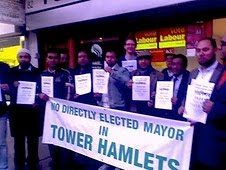
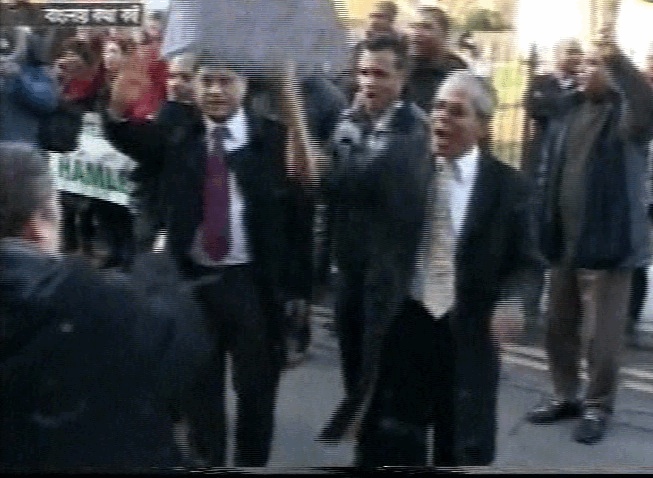





























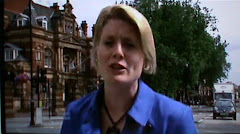






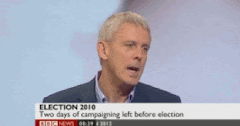






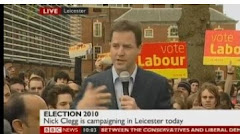



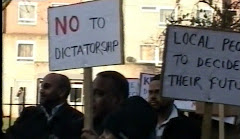



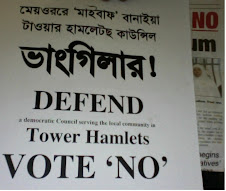
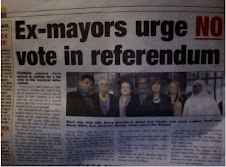



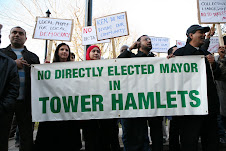





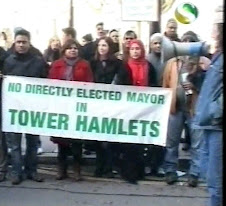

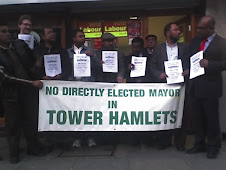

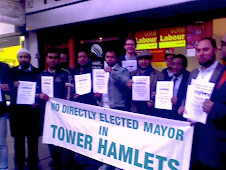
No comments:
Post a Comment